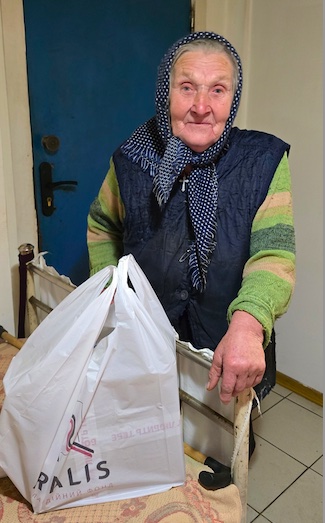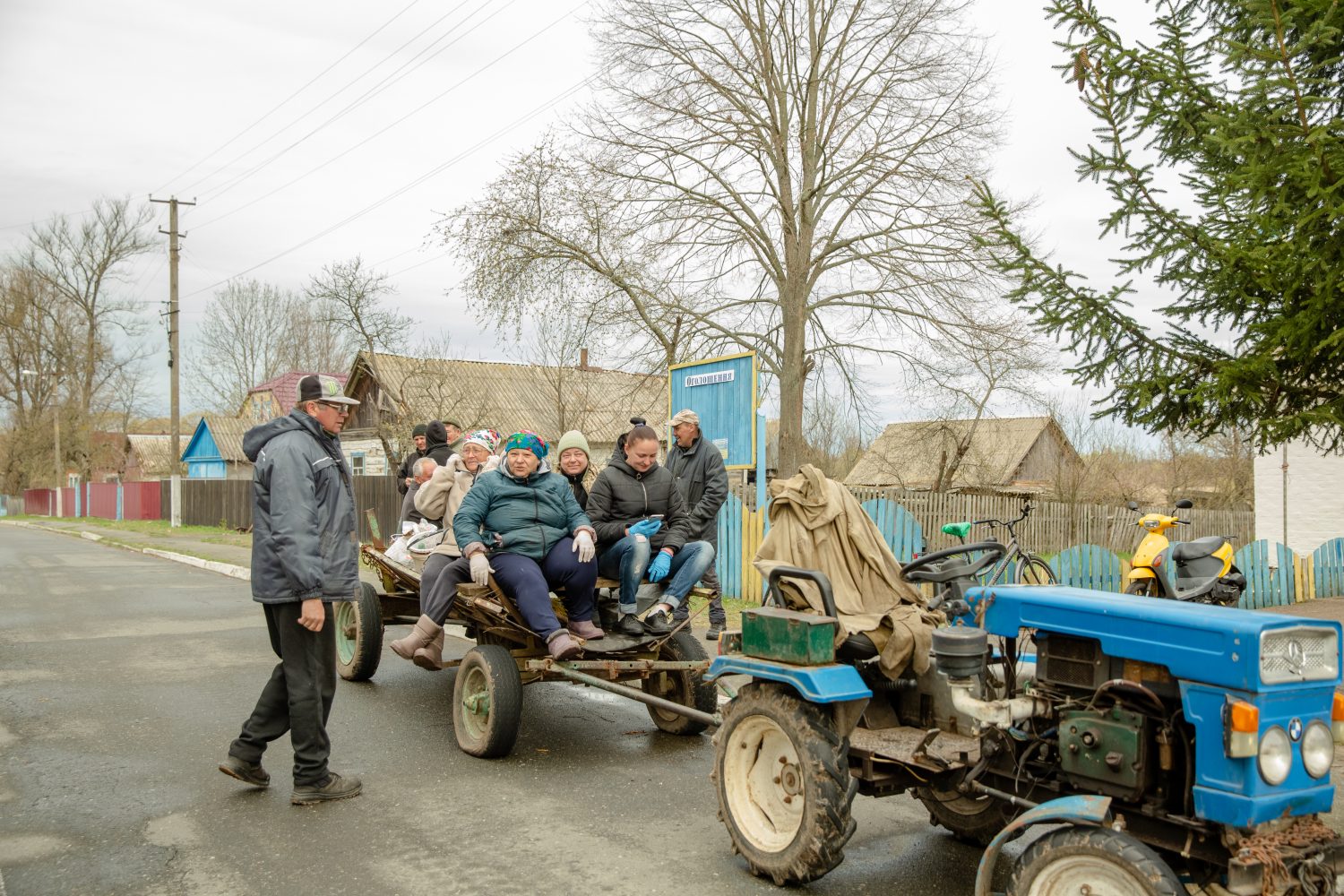
In the darkest times, it is especially important that someone brings light into daily life. The charitable foundation Realis has been supporting those on the edge for many years—people who lost their homes, loved ones, and the ground beneath their feet, but did not lose their dignity. The foundation’s help is not only about food packages and sweets. Above all, it is about care, attention, and placing the human being at the center. And when Ukraine trembles from war, it is precisely to small villages forgotten by the state, where lonely elderly people, exhausted mothers, and children in need of warmth remain—that is where Realis goes.
Help becomes lifesaving not only physically. It restores people’s hope. It testifies: you are not alone. It speaks simply and sincerely: we are near, we hear, we see, we care. Today, villages that found themselves under occupation, and later in a state of silence where life barely flickers, especially need such support. Because restoration begins with small things—with humanity. That is why Realis went to Rahivka.
In ancient times, the village of Rahivka was developing rapidly and attracting new residents. The population grew, people had jobs, started families, and gave birth to children. The village was flourishing.
But after the Chornobyl nuclear disaster, everything changed. The surrounding villages were resettled in safer places, while Rahivka remained. Those who could, left on their own. The number of residents decreased significantly.
When the full-scale invasion began, the villagers did not manage to evacuate. Because of its proximity to the border with Belarus, they instantly found themselves under occupation. The first day of the war began with explosions at four in the morning. No one wanted to believe that a real war had started, but fear forced people to hide in basements.
“Life in the basement, sleeping in clothes, constant fear for yourself and your loved ones—that’s what we went through in the first days of the war and during the occupation,” recalls Mrs. Valentyna, who helped the Realis team organize the distribution of humanitarian aid. “And now we lack people badly. There is no one to work—only the elderly remain. But everyone who cares about the village does everything possible, and even more, so that life continues. Our people are kind and hardworking, but many are broken. The men who still remain often abuse alcohol. And children in such families suffer greatly.”
“I was four months pregnant, and I told no one in the village about my condition,” says Tetiana. “My husband and daughter stayed with me in the basement. It was terrifying, especially for the unborn child. My husband wouldn’t let me leave the basement, protecting me from the occupiers. But I so longed to breathe fresh air and stay calm. The birth was difficult—my emotional state affected the baby. My daughter didn’t want to turn, so they had to do a C-section. She was born very anxious, and now, as she’s grown a little, she gets frightened easily and always looks to me for protection.”
The villagers said that, for safety reasons, during the occupation they communicated with Russian soldiers in their language. When the soldiers began to break into the store and steal food, the owner offered to give everything away, just so they wouldn’t smash the place. Different soldiers came to the village: some aggressive, others calm.
One of the most painful stories is about a young woman who was about to give birth. Because of heavy shelling, she could not be taken to the maternity hospital in the district center. The occupiers took her to Belarus. Her further fate is unknown. The villagers hope that both the mother and the child survived.
When I asked whether something terrible had happened in the village, people lowered their eyes and answered briefly:
“Yes, there was torture… But we don’t want to remember it. We want to forget.”

Oleh, the village elder, spoke about the current problems of the village. He has been in office for only three months. Before that, he worked in Kyiv, but decided to return and care for his native village.
“There are almost no young people left. Only a handful of healthy men remain. Those who can are at the front. The ones who return come back wounded, with severe physical and psychological trauma. There are many elderly women who can hardly cope on their own. They need help.
The village is emptying. Many houses stand without windows, without people.
‘Come and live here,’ the elder says. ‘There is no work. Even the school had to be closed. In the neighboring village, the school is also on the edge. A bus carries children from four villages, but the situation is getting worse.’
Villagers survive thanks to their kitchen gardens. The fields that used to be sown are now mined—over 200 hectares. The forests too are dangerous—it’s impossible to go mushroom or berry picking anymore.
Despite everything, people try to keep their yards in order, care for the village, and preserve beauty and cleanliness.
On the day the Realis team arrived with humanitarian aid, the villagers had already gathered near the House of Culture. A team of women on a little cart pulled by a tractor was getting ready to whitewash the curbs and poles before Easter.
‘The village must be clean and beautiful,’ says Mrs. Liudmyla, the elder’s wife. ‘If we all take it up together—it will look good. We do not lose hope, we do not give up, we do not stop loving life. And the land will not wait. We believe in God, we go to church, and every day we do all that we can.’
Rahivka is not just a point on the map. It is a symbol of survival, struggle, and humanity where everything seemed destined to fade away. The people who remain hold on not for themselves—but for the land, for memory, for those who are yet to return.
And it is precisely such places that receive help which restores faith. The charitable foundation Realis came to Rahivka to support its residents. The team brought food packages and festive sweets for the children—not just food, but a sign of care. This was not a one-time gesture, but a sincere desire to say: you are not alone.
Realis paid special attention to those who, due to age or health, could not make it to the House of Culture—the volunteers personally delivered the packages directly to each such resident’s home. Every such trip is not just logistics, but a living conversation, a smile, support that has more power than a thousand words.
Life still stirs here: in the small gardens, in the freshly painted curbs, in the daily chores, in words of gratitude and warmth. Despite loss, despite pain, the village breathes. Quietly, with effort—but it breathes. Because there are those who do not give up. And there are those who lend a shoulder. There are those who believe. Believe that Rahivka will come alive again—just like all of Ukraine!
Posted on: 28.05.2025